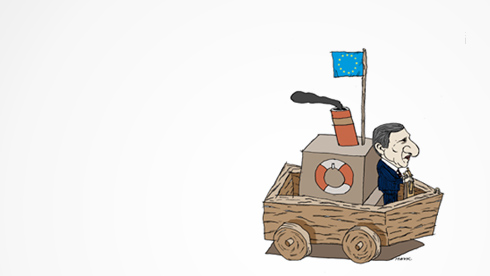The candidates are beginning to step forward. The contest itself will be a tight one and its implications will be very serious, since, unlike earlier European elections, the 2014 elections will lead to significant changes, most Brussels political analysts believe – particularly in the traditional balance related to the presence of the big political groupings that have dominated the scene in the European Union so far.
The result will be influenced by the upheavals caused by the economic crisis among the general public, but also by the appearance of a more marked phenomenon of distrust of the capacity of the current political class to govern. As a result, we can already look forward to the emergence of a few small parties with a euro-sceptic or even anti-European message whose goal may be to create a minority in the European Parliament that can block legislation.
This possibility would cast some uncertainty over the European legislative process, as it would over the relationships between the Parliament, the Commission and the Council. The response of the traditional parties may involve – and this is what is happening at the moment – coming up with credible proposals for the key function of the European project, namely the presidency of the European Commission. [[The choice is even more important because, behind the scenes, it already evokes the eventuality of a change in the Lisbon Treaty]], which would allow the presidency of the European Commission to be merged with the presidency of the European Council.
US presidential powers?
The position that would thus result would be similar, in terms of power and influence, to that of the President of the United States. But, I repeat, this is only an idea circulating at the moment in the corridors of power.
Let's look now at the cards in play and what names have been put forward, as announced in an interview given to a Polish newspaper by Joseph Daul, leader of the European Parliament's EPP Group. As earlier this year it was decided that each political group would be allowed to appoint its own candidates, the Socialists have already put forward Martin Schulz, currently President of the European Parliament. The EPP [European People's Party, conservative], has not yet decided. On the other hand, two European Commissioners, Viviane Reding and Michel Barnier, are already in the race, as is Swedish Prime Minister John Fredrik Reinfeldt.
What is notable in Joseph Daul’s list is the absense of the name of the current President of the Commission, José Manuel Barroso, but this omission does not mean a definitive exclusion. This applies equally to the current Polish Prime Minister Donald Tusk, who has indicated that he will not stand as candidate, so shutting down any speculation concerning the possible presence of a conservative candidate from eastern Europe.
Thumbs down to Schulz
Moreover, it is likely, given what appears to be the predictable electoral victory of Mrs Merkel in September, that the message from Germany is not in favour of Mr Schulz. In consequence, the right would have to choose between Viviane Reding and John Fredrik Reinfeldt, both candidates that are easily acceptable and tenable at the level of the European Parliament. Another credible candidate and one even easier to support is France’s Michel Barnier, whose track record includes improvements to the single market and a flawless performance as a negotiator of the Treaty of Nice.
[[In reality, everyone is waiting on the results of the elections in Germany]], which will obviously sway the course of future negotiations and the repositioning of forces within European politics. Germany, after all, remains the guarantor of the Eurozone as its economic champion, following the very weak performance of France under the socialist François Holland.
Member countries are now beginning to step forward with credible proposals for European Commissioner posts. Evidently, some of the names submitted to the subjective scrutiny of the governing party’s political teams – and not just them, fortunately – are reputed specialists in their field.
One scenario remains: what if, against the odds, Mr Barroso stands again and, despite everything, wins a third term? The game will start all over again, and we will carry on as if nothing had happened.
Was this article useful? If so we are delighted!
It is freely available because we believe that the right to free and independent information is essential for democracy. But this right is not guaranteed forever, and independence comes at a cost. We need your support in order to continue publishing independent, multilingual news for all Europeans.
Discover our subscription offers and their exclusive benefits and become a member of our community now!












